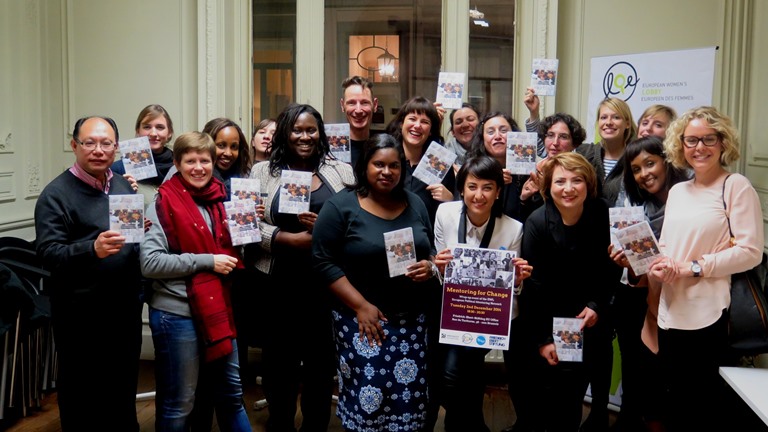Boardroom quotas for women are the only option left to achieve gender balance, according to an equality campaign group. That view is not necessarily shared by lawmakers in the European Parliament, as the EU prepares to legislate on the matter.
The European Commission is preparing a new law to ensure women make up 40% of the boardroom in all EU countries by 2020.
The European Women’s Lobby backed the plans and said all EU member states should follow the example of the six European countries that have already adopted legislation.
“Repeated national, European and international commitments to equality between women and men, including in decision-making, have failed to produce results,” a spokeswoman for the group said. “Appeals for self-regulation have failed to produce results. Women cannot be asked to accept this exclusion any longer.”
While women are half of the overall population and 60% of university graduates, they represent on average only 14% of board members of publicly-listed companies.
The debate over economic governance has gained force with the crisis, while an increasingly large body of research has demonstrated how gender equality and diversity on boards of administration is a factor in efficiency.
In recent years, Norway, France, Belgium, the Netherlands, Italy and Spain have all adopted progressive legislation to improve the representation of women on boards of administration, with positive results. These successful examples should be a model for the European continent as a whole.
But one academic has warned EU moves to bring in quotas for women in business may not work. University of Aberdeen professor of sociology Claire Wallace said quotas were not the best way to get more women into positions of power.
“Quotas do work and they’re one way of raising women’s representation and do tend to break the mould for future generations. But quotas tend to be unpopular and some people think ‘she’s only got there because she’s a woman’. There are much better ways – having targets rather than quotas is a much better method,” Wallace said.
Wallace added that voluntary targets needed to be monitored and young women should be nurtured early on with mentors.
A UK-led backlash against quotas has split Scottish MEPs, with three in favour and three against. North-east Scottish MEP Struan Stevenson said the EU should not interfere.
“I agree that there are too few women on company boards but compulsory quotas from Brussels will not help. It is up to individual member states to decide how to address this problem. The UK currently has a voluntary approach and it is working,” Stevenson said.
Women represented 13.7% of board positions in large listed companies, according to EU data from January.
Lacking improvement ‘shameful’
Scottish MEP Alyn Smith also does not support an EU-wide quota, although he stressed his support for gender equality.
“I’m in favour of all measures to promote equality, of which gender balance is an important part. But I’m against quotas because I think they impose artificial restraints which do more harm than good. There is lots to be done, but I don’t see that quotas are the answer.”
Neither does MEP Ian Hudghton.
“I am not a supporter of EU legislation. I think that the member states should decide on such matters, so that any actions which they consider appropriate would be tailored to the situation pertaining in each country,” Hudghton said.
Scottish MEPs George Lyon, David Martin and Catherine Stihler all said they supported the plans.
France, Italy and the Netherlands are among countries that have already adopted national quotas but the UK has not.
However, three Scotting MEPs would support laws being put in place, including George Lyon. “Softer measures are not working, it is time that we put in place plans that will make a real difference in having greater equality at the top levels of business,” he said.
MEPs David Martin and MEP Catherine Stihler also support the legislative plan.
Jennifer McKiernan, journalist at the Aberdeen Evening Express and a Robert Bosch Stiftung-EurActiv Journalism Fellow


